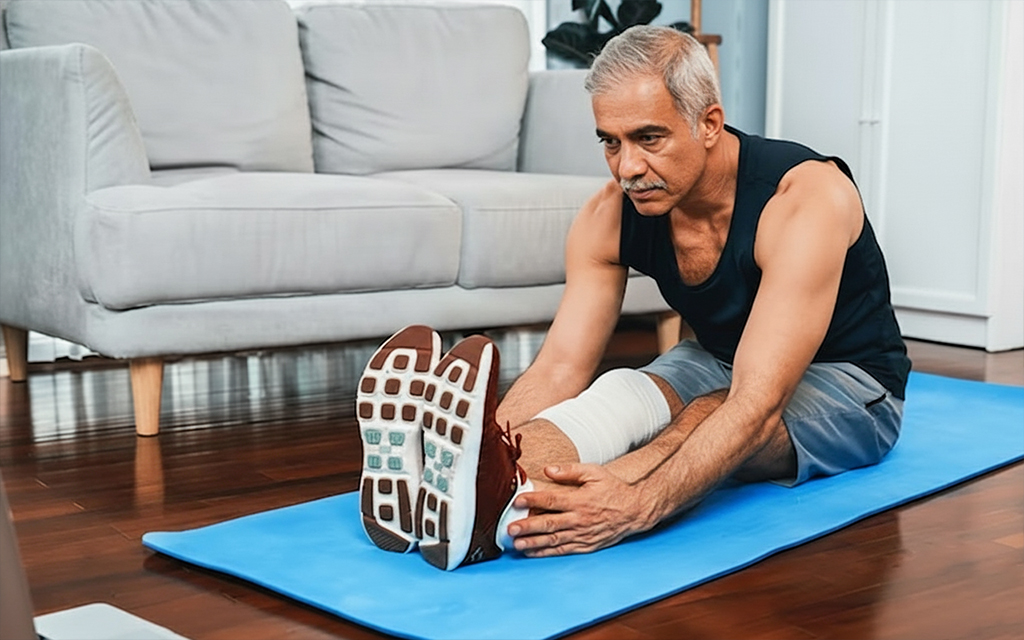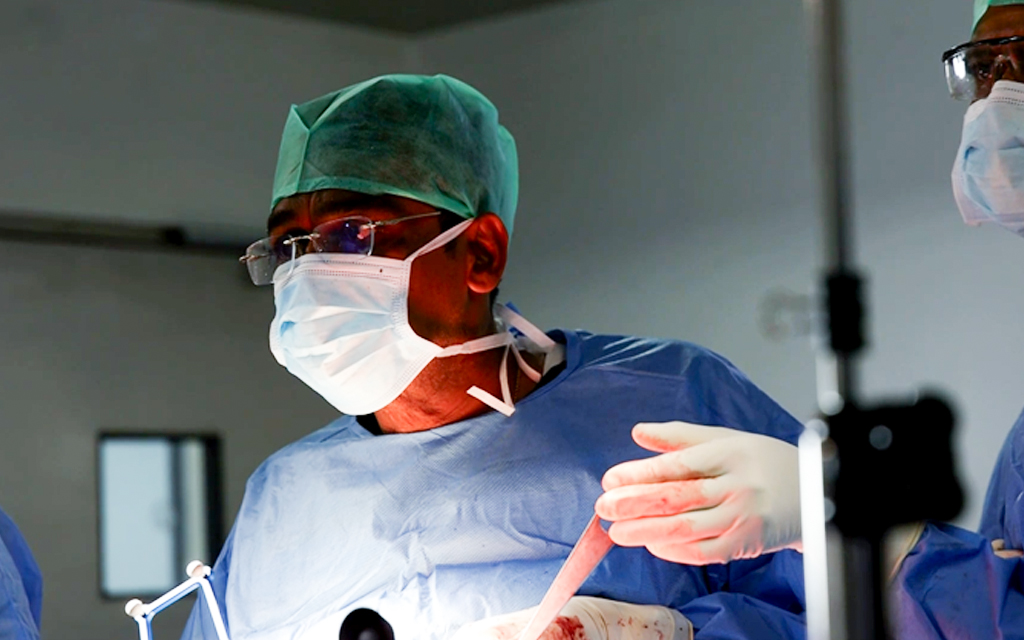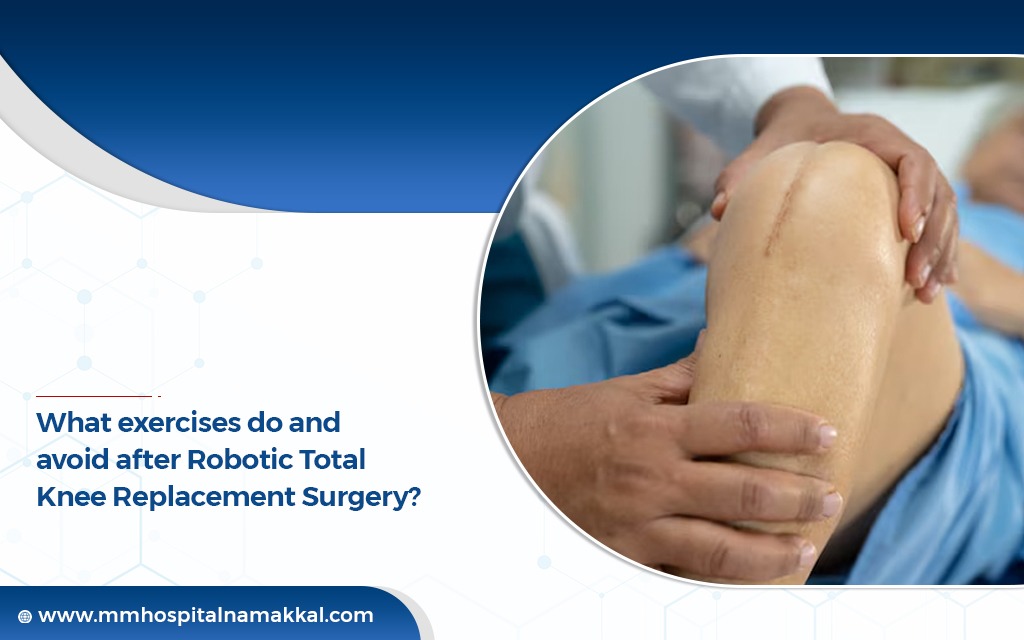Robotic Total Knee Replacement Surgery represents a remarkable advancement in Orthopedic Care, combining precision technology with expert surgical skill to restore knee function and alleviate chronic pain. However, the surgery itself is only the beginning. Successful long-term recovery depends heavily on a structured rehabilitation program focused on appropriate exercises and activities to avoid. This detailed guide helps patients understand what exercises to perform and which to avoid after Robotic Assisted Knee Joint Replacement Surgery, especially when treated at MM Hospital—the Best Orthopedic Hospital in Tamilnadu, known for its expertise in Robotic Orthopedic Knee Replacement Surgery.
The Importance of Exercise After Robotic Total Knee Replacement
Proper exercise after Knee Replacement Surgery is crucial to regain strength, improve knee flexibility, reduce swelling, and restore normal walking patterns. These exercises help in preventing stiffness, muscle weakness, and other complications that could compromise the success of the surgery.
On the other hand, some movements and activities can harm the healing process or strain the new joint. Therefore, understanding both recommended exercises and those to avoid is vital for every patient’s recovery journey.

Phases of Rehabilitation and Exercise Progression
Rehabilitation after Robotic Total Knee Replacement generally follows a phased approach:
- Phase 1: Immediate Postoperative Phase (Days 1-7)
Focus on gentle movements, controlling swelling, and getting out of bed safely with assistance. - Phase 2: Early Recovery Phase (Weeks 2-6)
Increase range of motion, begin muscle strengthening exercises, and safely increase walking distance. - Phase 3: Intermediate Phase (Weeks 6-12)
Advance strength training, improve balance and coordination, and return to functional activities. - Phase 4: Late Recovery Phase (Months 3-6 and beyond)
Focus on endurance, return to recreational activities, and optimize knee function.
MM Hospital tailors rehabilitation plans individually, ensuring exercises align with each patient’s healing stage and capabilities.
Recommended Exercises After Robotic Knee Replacement
Immediate Postoperative Exercises
- Ankle Pumps: Move feet up and down frequently to stimulate blood flow and prevent clots.
- Quadriceps Sets: Tighten thigh muscles while keeping leg straight; hold and relax to prevent atrophy.
- Gluteal Sets: Contract buttock muscles to maintain strength.
Early Recovery Phase Exercises
- Heel Slides: Slide heel back to bend knee and straighten to improve flexibility.
- Straight Leg Raises: While lying flat, raise straightened leg slowly; builds thigh strength.
- Seated Knee Bends: Sit and slide foot back to bend knee; promotes comfortable bending.
- Short Arc Quads: Raise foot slightly with knee supported on a rolled towel; strengthens quadriceps.
Intermediate Phase Exercises
- Standing Mini Squats: Perform shallow squats with support to strengthen the knee safely.
- Step-Ups: Step onto a low platform step by step to enhance functional strength.
- Heel Raises: Rise on toes to strengthen calf muscles.
- Stationary Cycling: Low resistance helps improve knee mobility and muscle endurance.
Late Recovery and Maintenance
- Lateral Leg Raises: Strengthen hip abductors for better joint stability.
- Side-Stepping: Enhances balance and agility.
- Advanced Balance Exercises: Single-leg stance, use of wobble boards for proprioception.
- Low Impact Aerobic Activity: Swimming or walking for cardiovascular fitness without joint strain.
Consistency is essential. Patients typically perform these exercises daily or as recommended by their physiotherapists at MM Hospital.
Exercises and Activities to Avoid Post-Surgery
Certain movements should be avoided to protect the new knee joint and prevent complications:
- Running and High-Impact Sports: Activities causing jarring impact can damage the implant.
- Jumping or Hopping: Sudden weight-bearing stresses the knee.
- Deep Squats and Lunges: Excessive knee bending beyond 90 degrees may cause instability.
- Twisting or Pivoting Movements: Risk of ligament strain or implant damage.
- Uneven Surfaces Walking or Hiking: Increases fall risk and joint stress.
- Prolonged Standing or Heavy Lifting: Causes unnecessary swelling and joint fatigue.
Patients should wait for their surgeon and physiotherapy team at MM Hospital to clear these activities during their rehabilitation.
Additional Tips for Safe Rehabilitation
- Use assistive devices (walker, cane) as recommended for safety.
- Perform exercises in a pain-free range; some discomfort is normal but sharp pain signals to stop.
- Apply ice after exercise sessions to reduce swelling.
- Follow dietary and hydration advice to promote healing.
- Attend all therapy sessions and follow the supervised rehabilitation plan.
Why MM Hospital is the Best Choice for Robotic Knee Surgery Rehabilitation

MM Hospital is considered the Best Orthopedic Hospital in Tamilnadu because of its integration of robotic surgery technology with comprehensive postoperative rehabilitation. Whether you undergo Robotic Orthopedic Knee Surgery in Salem or Robotic Assisted Knee Joint Replacement Surgery in Tamilnadu, MM Hospital offers:
- Experienced orthopedic surgeons specialized in robotic procedures.
- State-of-the-art surgical and rehab facilities.
- Dedicated physiotherapy teams that individualize exercise programs for each patient.
- Continuous monitoring and adjustment of rehabilitation protocols to optimize recovery.
- Patient education and support services to promote long-term joint health.
Patients find confidence in MM Hospital’s holistic approach, helping them recover faster and return to activities they enjoy.
Conclusion
Robotic Total Knee Replacement Surgery is a sophisticated procedure with excellent outcomes, but recovery depends deeply on proper rehabilitation. Performing the recommended exercises while avoiding harmful activities will protect your new knee and ensure lasting mobility and comfort.
For those undergoing Robotic Knee Replacement, partnering with MM Hospital—the Best Orthopedic Hospital in Tamilnadu—means access to advanced surgical techniques paired with superb rehabilitative care. This comprehensive approach optimizes your recovery and helps you enjoy a stronger, more active life.
Begin your journey to recovery today by consulting with MM Hospital’s orthopedic and physiotherapy experts. Your new knee is a step toward renewed mobility and freedom.


